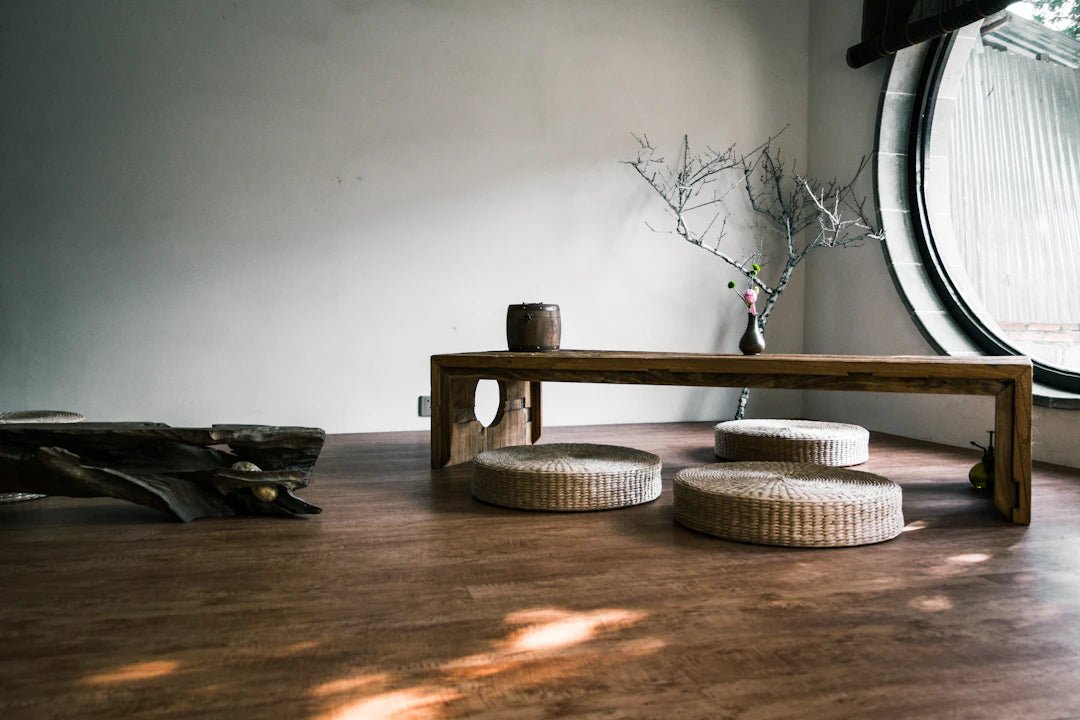Frequently Asked Questions
1. What are the psychological benefits of maintaining a tidy home?
2. How does clutter affect mental health?
3. What simple cleaning practices can enhance my home?
4. How can a tidy home improve social interactions?
5. What small changes can I make to have a tidier space?
Living in a tidy home is more than just a matter of aesthetics; it can play a crucial role in our emotional and mental well-being. A clean living environment can set the tone for your day, impacting your mood, productivity, and overall happiness. This article explores the psychological benefits of maintaining a tidy home and how simple cleaning practices, such as using a gel for dust removal, can enhance your surroundings and mental health.
The Connection Between Clutter and Mental Health
Numerous studies have shown a strong link between clutter and mental health. Here’s how a tidy environment can influence your psychological state:
Reduction in Stress and Anxiety
A cluttered space can lead to feelings of stress and anxiety. When surrounded by disorganization, individuals often find it difficult to focus. The sight of clutter can serve as a constant reminder of unfinished tasks and obligations, creating an overwhelming sensation. In contrast, a tidy environment promotes a sense of calm and allows for clearer thinking. Utilizing products such as a gel for dust removal not only helps keep surfaces organized but also ensures that your space remains soothing and inviting.
Boost in Productivity
Research suggests that individuals are more productive in environments that are neat and uncluttered. A tidy home allows for enhanced concentration and better decision-making. When each item has its designated place, distractions diminish, enabling you to focus on the tasks at hand. Integrating routine cleaning practices can significantly contribute to this effect, making it easier to maintain that productive momentum throughout your day.
Enhanced Mood and Emotional Well-Being
Your living space can dramatically affect your mood and overall emotional health. Here’s how keeping a tidy home can elevate your spirits:
Creation of a Positive Atmosphere
A clean and organized home fosters feelings of positivity and happiness. Walking into a well-maintained space can trigger a sense of accomplishment and comfort. Many people find that when their environment is tidy, they feel more motivated to engage in other positive activities, such as exercising or pursuing hobbies. Maintaining this environment, potentially with helpful tools like a gel for dust removal, can serve as a nurturing backdrop for joy and creativity.
Improved Focus on Personal Goals
When your surroundings are clutter-free, you free your mind to focus more on personal growth and development. With fewer distractions demanding your attention, it becomes easier to concentrate on achieving your goals. Whether you are pursuing career ambitions, education, or personal wellness, a tidy space can serve as a launching pad for these pursuits. You are more likely to thrive in an environment where chaos is minimized.
The Role of Cleaning Routines in Mental Health
Establishing a routine that incorporates regular decluttering and cleaning can contribute significantly to mental well-being. Here are ways to do it:
Regular Decluttering Sessions
Setting aside time for regular decluttering can alleviate feelings of being overwhelmed. By assessing your belongings periodically, you can decide what to keep and what to let go of, making your space feel more spacious. This routine does not need to be overwhelming; even short sessions can produce significant results over time.
Incorporating Cleanliness in Daily Life
Implementing short daily cleaning practices can vastly improve the tidiness of your home. Simple activities, such as quickly dusting surfaces with a gel for dust removal, can be done in a matter of minutes but yield a sense of accomplishment. This practice nurtures an environment conducive to peace and productivity.
Promoting Mindfulness Through Tidiness
Cleansing your environment also encourages mindfulness. Here’s how tidying up can help you cultivate this practice:
Mindful Cleaning Activities
Approaching cleaning as a mindful activity allows you to engage fully with the present moment. Focusing on the tasks at hand – whether dusting, organizing, or cleaning floors – promotes a sense of awareness, making it easier to disengage from stressors and distractions. By embracing these moments of mindfulness, you can foster a deeper connection with your living space, making it feel more like a sanctuary.
Creating Zones for Relaxation and Creativity
Rooms in your home can be tailored to promote various moods. For instance, a clean, tidy workspace can enhance productivity, while an organized relaxation area can encourage unwinding and self-care. By defining these spaces, you create opportunities for mindfulness and intentional living, both beneficial for mental health.
The Ripple Effect of a Tidy Home
The psychological advantages of maintaining a tidy home often extend beyond the individual. Here are some ways a tidy space can positively influence relationships and social interactions:
Improved Social Interactions
Having a clean home makes it easier to invite friends and family over, fostering social connections that are crucial for emotional well-being. Clutter can be a source of embarrassment or anxiety, which can deter you from opening your home to others. A tidy space invites engagement and shared experiences, positively influencing your social life.
Fostering a Sense of Community
Engaging in cleaning efforts, whether alone or with family, can foster a sense of teamwork and shared responsibility. These moments not only contribute to a tidy home but can also enhance your relationships with those around you. Working together on cleaning tasks, set against the backdrop of a tidy environment, can invoke feelings of achievement and cohesiveness among family members or roommates.
Making Small Changes for Big Impacts
You don’t need to overhaul your entire home to experience the benefits of tidiness. Here are some small changes that can have a significant impact:
- Adopt a "One In, One Out" Policy: For every new item you bring in, consider removing an existing one. This keeps clutter at bay.
- Set Up a Cleaning Schedule: Designate a few minutes each day to tidy specific areas of your home, making cleaning feel less daunting.
- Use Multi-Functional Furniture: Invest in furniture that provides storage solutions to minimize clutter.
Transforming Your Space and Mindset
In addition to implementing disciplines in cleanliness, consider the broader picture of how a tidy home can transform your life. You can reshape your mindset and create a more fulfilling environment that supports your daily activities and relationships.
Creating a Sanctuary
Transform your living space into a sanctuary by designing it to cater to your needs. Minimalist decor, organized spaces, and cleanliness can create an ambiance that feels safe and warm. Take the time to prioritize comfort and functionality in your home, allowing it to become a haven for relaxation and growth.
Encouragement to Start Your Day Right
A tidy environment can encourage a positive start to the day. Waking up in a clean and organized space sets the tone for productivity and positivity. Consider establishing a clean-up routine before hitting the bed at night, ensuring you wake up to tranquility and order.
Your Tidy Pathway to Happiness
Embracing tidiness is not merely about keeping your home neat; it’s a way to cultivate a happier, healthier mental state. By understanding and applying the psychological benefits of a tidy home, you can significantly enhance your quality of life. From reducing stress and bolstering productivity to creating positive social interactions, the impacts are profound and far-reaching. Let the journey begin today, one tidy corner at a time, and step into a happier, more harmonious home environment where you can thrive!


Share:
Sparkling Clean: Mastering Your Household Appliances
Revitalize Your Home: Tips for Cleaning Forgotten Spaces